Grant Awards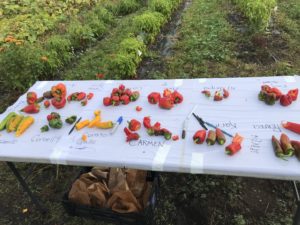
The impact Sustainable Path has in our region comes from the collective wisdom and focus of our community partners. By recognizing the interdependent nature of our world and using the principles of science, our Impact Circle partners strategically determine which projects our grants will fund and have identified topics for our seminar series.
Impact Circle-12 June 2019
Focus: Air Quality in Puget Sound
CITIZENS FOR A HEALTHY BAY: Strengthening Tacoma: Leveraging Community Engagement to Combat Air Pollution and Climate Change
INVESTIGATE WEST: Breathing Uneasy: Smoke, Health and Forest Fires
EMERALD CITIES COLLABORATIVE : Advocating Electrification of Buildings
Impact Circle-11 November 2018
Focus: Climate Change, Human Health and Nutrition
COMMUNITY 2 COMMUNITY DEVELOPMENT : Tierra y Agua Farmland and Watershed Stewardship
VASHON MAURY ISLAND LAND TRUST: Closing the Loop: from Tofu to Farm to School
THE COMMON ACRE: Wild Bee Education Initiative
Impact Circle-10 June 2018
Focus: Resilience of Food Systems
PCC Farmland Trust : Farm to Farmer
EarthCorps: Green Line Pollinator Planting Support
The Bread Lab : Community Outreach
Organic Seed Alliance : Training Farmer Scientists
Impact Circle-9 December 2017
Focus: General Operating Support for Past Grantees
City Fruit
Delridge North Development Association
EarthCorps
Jefferson Land Trust
Impact Circle-8 June 2017
Focus: Innovations in Sustainability
Emerald Cities – Seattle: Expand Green Up Funds for All
Sustainable Path’s grant will support their project to craft a carbon reduction fund that can be used to invest in renewable energy and to incentivize projects to convert from using fossil fuels to clean electricity.
Re-Sources For A Sustainable Community
Sustainable Path’s grant will fund the groundwork for RE Sources to design, implement, and host microplastic sampling and data collection training workshops for a new corps of citizen scientists.
The smallest things can sometimes create the biggest problems. Microplastics in Puget Sound is one such notable example. These tiny pieces of plastic—less than 5 mm in diameter—are wreaking havoc on our nearshore habitats, marine invertebrates, and many species of fish, mammals and birds. While scientists have researched and documented the impacts of microplastics on the world’s oceans, little is understood or known about what these tiny particles are doing to filter feeders, salmon and many other species in Puget Sound. At the macro level we know that everything from phytoplankton biomass to loss of habitat function is at risk but the extent of the damage and the long-term consequences remain largely unknown.
Sustainable Path’s grant will fund the groundwork for RE Sources to design, implement, and host microplastic sampling and data collection training workshops for a new corps of citizen scientists. Re-Sources is a partner of the Institute of Environmental Toxicology at Western Washington University (WWU) in conducting a risk assessment of microplastics in Puget Sound. Collecting and analyzing data at several sites will help both inform new policies to mitigate microplastic damage and identify hotspots.
Sightline Institute: The Thin Green Line – Land use law reform to prohibit new fossil fuel infrastructure
Sustainable Path’s grant will support Sightline’s work for land use reform.
Sightline’s work on preventing fossil fuels has been ongoing since 2011. Sightline was one of the first to ring the alarm on the hazards of coal transportation, as well as Big Oil’s plans to drastically increase oil-by-rail shipments to the coast. This work will continue until the global threat from fossil fuels has been contained, and every last export proposal has been shut down. In the near-term, Sightline anticipates local land use law will become the most effective tool for this job. Big energy companies need permission from local governments all up and down the Puget Sound—cities that have the potential to be the last line of defense that keeps these dirty and dangerous fossil fuels in the ground. The current legislative session is our next chance to hold the thin green line strong.
Sustainable Path’s grant will support Sightline’s work for land use reform. For this work, Sightline will act as the research and communications arm of this movement. Working in close collaboration with local partners, Sightline will support the introduction of new legislation that will amend Tacoma’s local land use law to forestall new dirty energy development. A powerful coalition is emerging in Tacoma– one that includes fence-line communities and residents, the nearby Puyallup Tribe, affected workers like the Longshoremen, and local environmental organizations – to protect Tacoma and the waters of Commencement Bay from the depredations of the fossil fuel industry. If successful in Tacoma, Sightline will help to replicate the ban in other Puget Sound cities in coming months and years.
Wild Fish Conservancy: San Juan Sustainable Fishery Model
Sustainable Path’s grant will support WFC’s work assisting local fishermen in their transition from gillnets to reef nets.
While it’s true Pacific salmon are critically important to the economy of the Northwest, to talk only of their economic importance ignores a greater truth. Salmon are the backbone of what we in the Northwest hold dear: our culture, our environment, and our communities.
Today, in waters once supporting abundant populations, four native salmonid species in the sound are listed as threatened under the Endangered Species Act: Chinook salmon, summer chum salmon, steelhead trout, and bull trout. Their decline cannot be attributed to any one cause, but rather an accumulation of detrimental human activities including habitat degradation, hatchery impacts, dams, and overharvest from non-selective commercial fishing practices. Sustainable Path’s grant will support Wild Fish Conservancy (WCF) works to mitigate the negative effects of the latter by expanding the use of sustainable, selective commercial fishing practices in Puget Sound.
Since 2015, WFC has worked in partnership with Lummi Island Wild, a collaboratively owned reef net fishery based on Lummi Island, to advocate for the adoption of reef nets as stock-selective gears. This collaboration has resulted in the expansion and promotion of a sustainable model for regional commercial fisheries. Using fishing methods pioneered centuries ago by the Lummi and Saanich Nations, the non-native members of Lummi Island Wild are re-purposing a traditional salmon harvesting method known as reef netting. Reef nets are capable of releasing ESA-listed salmon back into the wild with the lowest mortality and bycatch rates of any fishing gear. WFC has helped the Lummi Island fishers expand and succeed in harmony with the surrounding ecosystem and tribal communities.
Sustainable Path’s grant will support WFC’s work assisting local fishermen in their transition from gillnets to reef nets. WFC is working with engineers to refine the efficiency of reef nets as stock-selective harvest tools, securing sustainable market certification, and improve the viability of their co-op model.
Impact Circle-7 Fall 2016
Focus: Pushing the envelope for a sustainable community
Center for Sustainable Infrastructure (CSI)
Piloting the CSI Innovative Lab Services – a mission-serving and revenue-generating program to provide infrastructure managers with the services, tools, and methods to shape a decidedly more desirable future. The plan calls for at least two pilot projects to begin to establish the Innovation Lab’s track record and base of experience. CSI anticipates two pilot projects in their home city, Olympia. CSI believes Olympia can be a pioneering leader in Puget Sound of sustainable infrastructure innovation, and that these two pilot projects can represent powerful first steps in that direction.
PCC Farmland Trust
PCC Farmland Trust will support its farmers by establishing a new program, Advancing Farm Sustainability (AFS). AFS will enable farmers to adopt new approaches to sustainable land management—better protecting and stewarding the natural resources on their farms—that would otherwise be cost prohibitive. Each farmer-partner must develop a Farm Plan with the local Conservation District or Natural Resource Conservation Service. Often, these conservation organizations have some funds available to help farmers implement the best practices detailed in the plan. While these are valuable resources, the process to obtain funds is cumbersome, uncertain, and slow—barriers often discouraging farmers from adopting new sustainable practices. Through its new program, the Trust is able to help farmers navigate the various funding opportunities available to them. The AFS program also offers critical, flexible, financial assistance—dollars that can be leveraged as match in order to secure additional local or federal funds, or simply provide direct, rapid assistance when it is needed most.
Puget Soundkeeper Alliance
Water Quality Monitoring and Creek Advocacy Pilot Project is designed to address critical water pollution challenges by engaging existing citizen watershed groups with monitoring water quality and compliance with the Clean Water Act in their local watershed. Soundkeeper staff will identify and collaborate with community creek and other small watershed organizations, recruit and train volunteers to patrol and monitor their watershed, provide a Pollution Hotline for concerned citizens and whistleblowers , conduct targeted education and water quality sampling and ultimately amplify the voices to increase protection for Puget Sound.
Sustainable Connections
District Scale Utility Development for Bellingham’s Waterfront: As the City of Bellingham works to redevelop its former industrial waterfront, there is a rare opportunity to help guide decision makers in the development of a true ecodistrict built to enhance the community while based firmly on principles of sustainability. A key aspect of this eco-district will be the development of a District Energy system to provide energy to businesses, residences, and industrial installations in a manner that minimizes emissions while providing outstanding savings to district residents. Once installed studies indicate that by efficiently using steam and cold water to provide heat and cooling a district energy solution can reduce emissions in the waterfront district by emissions by 11,000 Metric Tons of C02 equivalent per year. Sustainable Connections will actively promote the idea of district energy to City Council, Port Representatives and Developer representatives as well as planning and industry professionals. They will bring in outside experts to present on the benefits of district energy and to address the final concerns of the involved parties. Additionally, Sustainable Connections will produce educational materials that can be used both educate the public on what a district energy system would provide and to publicize the system to local architects, developers, and realtors so that they can optimally utilize the benefits of such a system in attracting and designing for future residents.
Impact Circle- 6 May, 2016
Delridge Neighborhood Association: Wetlands and Stewardship Project
DNDA led a group of six organizations to acquire, restore and protect the wetlands at 23rd SW and SW Findlay street. They will create a community permaculture demonstration garden and a children’s garden.
Jefferson Land Trust: Chimacum Commons Project
JLT recently acquired 16 acres of historic farmland adjacent to Chimacum Creek. Their long-term vision for this site is to preserve it as farmland for aspiring farmers and build small, ecological dwelling units for farm interns and workers.
Seattle Tilth: Engaging Rainier Beach Residents in Environmental Stewardship Project
Seattle Tilth will hold work parties to construct a rain garden to demonstrate how to deal with stormwater runoff in a sustainable way, as well as a learning garden that will serve as an outdoor classroom.
Impact Circle -5 December, 2015
Futurewise: Climate Justice and Resilient Voices Project
The Climate Justice and Resilient Voices Project will bring the voice of youth into Seattle’s Comprehensive Planning process so that climate equity will be strengthened as the City plans for the next 20 years. Seattle city will adopt their Comprehensive Plan and Capital Improvement Plan by December 2016. Futurewise will work with partners El Centro de la Raza and Arts Corps to train youth in storytelling and spoken word, as well as education on climate change impacts and data about the communities that will be most impacted. The youths’ works will be showcased at a community reception, and also shown in other locations, as well as an online gallery presentation and an interactive website.
Nature Consortium: Urban Reforestation Project
Nature Consortium has been successfully restoring the West Duwamish Greenbelt since 2003, with the long term goal of helping the area transition towards a more balanced, mixed-‐age deciduous and coniferous forest, leading to increase in the tree canopy, carbon sequestration, and a sustainable environment. On a weekly basis, they often have as many as 150 individual volunteers clearing 15,000 square feet of invasive plants. Sustainable Path’s grant will increase their capacity to engage and train more volunteers, thereby increasing the scale of their restoration activities.
NW Sustainable Energy for Economic Development (NW SEED): Solarize Woodinville Project
Through Solarize Woodinville, Northwest SEED will partner with community volunteers, local government leaders, solar installers, and Puget Sound Energy to boost awareness and offer a limited time group purchase opportunity for homeowners and small businesses to install solar panels with an emergency power option. Sustainable Path’s grant will be used to expand the Solarize offering by incorporating the next generation of solar technology so that NW SEED can continue to grow locally connected communities powered by rooftop solar .
NW Natural Resource Group (NNRG): Accelerating Resilience for Small Forests
NNRG provides educational workshops, forestry assistance, financial incentives, marketing and Forest Stewardship Council (FSC) certification for small forest owners. This project will educate forest owners about how to use forest stewardship planning, forest certification, and ecologically-based thinning projects to mitigate and adapt to climate change. Sustainable Path’s grant will support landowner outreach, site visits and training events.
NW Natural Resource Group (NNRG): Accelerating Resilience for Small Forests
NNRG provides educational workshops, forestry assistance, financial incentives, marketing and Forest Stewardship Council (FSC) certification for small forest owners. This project will educate forest owners about how to use forest stewardship planning, forest certification and ecologically-based thinning projects to mitigate and adapt to climate change. Sustainable Path’s grant will support landowner outreach, site visits and training events.
Impact Circle- 4 June, 2015
FOCUS: Building Puget Sound’s Resilience in the Face of Climate Change
Puget Soundkeeper Alliance (Soundkeeper): Water Quality Monitoring Project
The mission of the Soundkeeper is to protect and preserve Puget Sound by monitoring, cleaning up and preventing pollutants from entering its waters. Soundkeeper actively monitors Puget Sound’s water quality by boat, enforces the Clean Water Act, engages with stakeholders and regulators and implements solution-oriented partnerships with Puget Sound residents and the business community. The Clean Water Act allows citizens to step in when regulatory agencies like the state department of Ecology are unable to fulfill their legal obligations to protect the Sound. Soundkeeper is only one of two organizations that has field monitoring capability. The other organization is ReSources’ North South Baykeeper program.
This grant supports Soundkeeper’s presence on the ground from six hours/week to 46 hours/week. It will enable Soundkeeper to expand its patrol range and hlep the Legal Committee and Staff Attorney prepare and prioritize enforcement.
ReSources: Tenmile Creek Watershed and Fecal Coliform Project
ReSources Clean Water team has been conducting work in the Tenmile Creek watershed of Whatcom County’s Water Resources Inventory Area 1. The project’s aim is to reduce the amount of fecal coliform loading in the watershed, which drains to Portage Bay – a traditional shellfishing area for the Lummi Nation that is periodically closed due to high fecal coliform levels. The heart of this project focuses on engaging watershed residents in reducing contamination by engaging them in collecting water samples, reviewing data from those samples, and then working together to eliminate the causes of high fecal coliform.
This grant supports this work and will enable ReSources to expand this model to adjacent watersheds.
Impact Circle 3 Grants – May, 2015
Climate Solutions: New Energy Cities
In 2015, we will build on our work with the King County-Cities Climate Collaboration (K4C), a voluntary coalition of 12 cities including and surrounding Seattle that are determined to reduce regional green house gas (GHG) emissions. The goal of this new focus is to provide our New Energy Cities technical assistance to a city in South King County that lacks the resources of the county’s cities with more affluent tax bases. The desired outcome is that a city with fewer resources and a significant population of low-income residents, such as Burien, Federal Way, Renton, or Tukwila, would have access to the same tools as other cities in the county and thereby create a plan for how to reduce its community’s GHG emissions.
Emerald Cities-Seattle: RENEW project – Retrofits for Energy Efficiency Works
The RENEW program will educate affordable housing building owners (non-profit organizations) about efficiency opportunities, setting the stage for engagement in efficiency projects. Program partner, O’Brien & Company will act as Green Building Advisor supporting assessments, project development, and monitoring and verification. As the program financing coach, Emerald Cities Seattle will bring new finance options to building owners and assist with selection and attainment of financing for projects. The program will address the entire portfolio of each building owner and bundle projects in lots of 4-6 in order to gain efficiencies.
This grant will start the full pilot phase of five buildings followed by a scale-up of ten buildings. The overall plan is to complete 15 projects using the Development Fund to share the cost of initial development work with the building owner. As the program grows over the next 24 months, the RENEW fund will eventually support 20 projects per year.
International Living Future Institute (ILFI): Increase Net Zero Energy Buildings in Puget Sound Project
ILFI will reach out to the Puget Sound region, educate the community about zero energy solutions, identify buildings that claim or are planning to achieve net zero energy and provide the technical assistance and resources to guide them through the Net Zero Energy certification process. ILFI hopes to certify 10 new buildings by the end of this grant period.
To earn Net Zero Energy certification, a project must meet the requirements of five Living Building Challenge imperatives, including:
- Limits to Growth (curbing the building’s contribution to the effects of sprawled development, which undermines the positive impact of achieving net zero energy building operation
- Net Zero Energy
- Beauty + Spirit and Inspiration + Education, underscoring the notion that renewable energy systems can be incorporated into a building in ways that are attractive and inspiring
The grant will support these actions of ILFI:
- Provide technical assistance to project teams of buildings that fall short of expectations, assisting them to successfully complete certification requirements
- Work with project teams on new buildings to ensure that net zero energy requirements are successfully implemented
- Deliver ongoing, targeted net zero energy education programs to building owners, design professionals and community leaders
- Document case studies online and in publications
Nisqually Land Trust: Carbon Sequestration on Private Forest Land Project
The Nisqually Land Trust is developing a forest carbon offset project under the California Air Resources Board Offset Protocol for U.S. Forests as a means to pay for acquisition, restoration, and long-term stewardship of land that was owned by an industrial timber manager. The Nisqually Land Trust has partnered with the Washington Environmental Council to promote forest conservation and forest carbon offset projects to high-profile companies in the Puget Sound region.
The grant award will help fund the completion of the carbon offset project through verification and registration of credits and the production of a lessons learned document. The development phase of the project (forest inventory, modeling carbon stocks under baseline, project management, project documentation, third-party verification, registry and regulatory review) will last through the third quarter of 2015. Marketing credits to local companies will be ongoing but for the first large transaction should be completed by the end of 2015. The development of the “lessons learned” document will be completed by the end of the first quarter of 2016.
You can read more about the process of modeling carbon stock process on the NLT website.
Impact Circle 2 Grants – March, 2015
- American Rivers: Resilient Green River Campaign
- Conservation Northwest: Watershed Health in the Mount Baker-Snoqualmie National Forest
- EarthCorps: Commencement Bay Climate Adaptation Planning
- Friends of the San Juans: Advancing Sea Level Rise Adaptation in the San Juan Islands
-
2012 Grantees
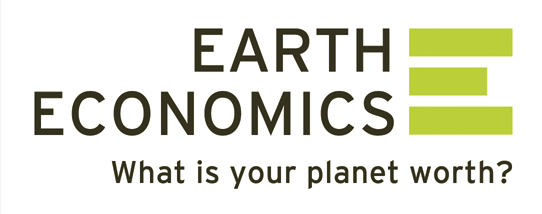 21st Century Utility Initiative
21st Century Utility InitiativeEarth Economics’ ongoing work helps inform policymakers about the value of natural capital assets—watersheds in particular—with the ultimate goal of municipal utilities being able to reflect the true values of these ecosystem services on their books.
 Beacon Hill Food Forest
Beacon Hill Food ForestP-Patch Trust’s envisioned a seven-acre permaculture urban forest garden in Beacon Hill, one of Seattle’s most diverse neighborhoods. The Food Forest allows those from all ages and backgrounds to gather together, grow their own food, and rehabilitate their local ecosystem.
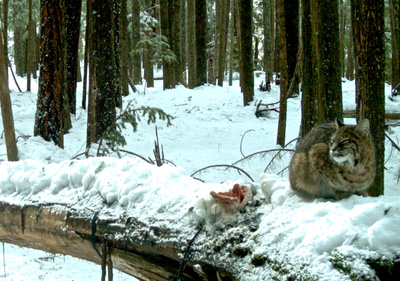
Citizen Wildlife Monitoring Program
Conservation Northwest recruits and train volunteers—from hikers to skiers to elementary school students—in snow‐tracking and remote‐sensing camera monitoring techniques to collect wildlife data on wolves, wolverines, bears, and lynx in and around the Cascades, including along the I-90 corridor.
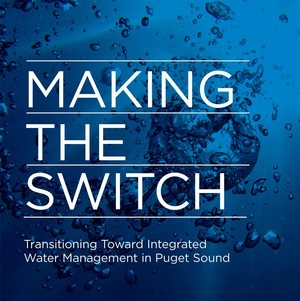 Community Water Management Transition Project
Community Water Management Transition ProjectCascadia Green Building Council works towards net-zero water in our region through regulation and policy change. Their “Making the Switch” white paper will outline both a vision for net-zero water as well as a comprehensive road map so that communities can transition from “business as usual” to a more restorative, ecologically sound future.

Forest Monitoring Team
EarthCorps recruits, trains, and supports teams of volunteer citizen scientists who are committed to monitoring—both on land and online—and restoring the precious urban forests of Seattle – and, soon, neighboring cities Kent, Kirkland, Redmond, and Tacoma as well.

Growing the Seeds for a Sustainable Community
Greenbank Farm Agriculture Training Center is creating a seed system – one that includes development of a local model and demonstration site for organic seed development as well as farmer training in organic on-farm research, crop breeding, and seed production, right in the heart of Whidbey Island.
 Northwest Biocarbon Initiative
Northwest Biocarbon InitiativeClimate Solutions wants to make the Pacific Northwest the global leader in creating and implementing cutting-edge policies and practices that increase carbon storage in our abundant forests, farms, and urbanized landscapes.
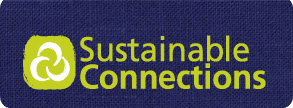 Toward Zero Waste Initiative
Toward Zero Waste InitiativeSustainable Connections focuses on leveraging knowledge—of Whatcom County businesses, waste haulers, and municipalities—and turning that into a significant reduction in waste and increase in recycling, working toward the ultimate goal of becoming a zero-waste community.
2011 Grantees
Cascadia Green Building Council: Supported the From Toolkit to Policy Change: Guiding Puget Sound Communities toward 21st Century Wastewater Strategies project. Previous funding from Sustainable Path enabled development of the Toolkit to create policy change around waste water strategies. The 2011 grant will allow CGBC to take the next steps: Working from the Toolkit, CGBC will create and host seven “Exploring Net Zero Water” lectures geared toward key decision-makers within the Puget Sound area.
Climate Solutions: Provided key funds to enable the organization to move into the second phase of its New Energy Cities project. New Energy Cities provides guidance and technical assistance to small- to medium-sized Northwest cities like Edmonds, Washington, as they plan for and implement clean-energy solutions like smart-grid technology and distributed renewable power. Sustainable Path’s support enables Climate Solutions to help move cities to the implementation phase of their transitions; increase the number of cities Climate Solutions assists; and communicate their successes to a broad audience.
EarthCorps: Support for the Forest Monitoring Team program. The Forest Monitoring Team is a citizen science project; volunteers are trained to document and measure urban forest restoration and establish permanent monitoring plots in Seattle-area parks. Sustainable Path’s 2011 support will allow EarthCorps to recruit and train more volunteers, with special emphasis on those from underserved neighborhoods in southeast Seattle, and to create volunteer data collection protocols for additional variables.
Earth Economics: Provided pilot funding for to support the Accounting for Natural Capital project. Accounting for Natural Capital includes Earth Economics’ work to change national Governmental Accounting Standards Board (GASB) rules to include the watersheds as capital assets on public water utilities’—including Seattle Public Utilities’—books. Sustainable Path funding will help Earth Economics create, circulate, and submit technical and supporting documents to the GASB requesting the rule change.
The Evergreen State College Foundation received support for their Sound Learning Communities project. Sound Learning Communities intends to prepare 100 faculty members, drawn from diverse disciplines, to develop coursework that informs and motivates students to understand Puget Sound as a complex system and the strategies required to restore its health. Sustainable Path’s grant will support faculty members’ field work at four sites in Puget Sound, leading to individual and collaborative curriculum development and service projects; the curriculum and service projects are estimated to reach over 70,000 Puget Sound college and university students over the next ten years.
RE Sources: Supported the Whatcom Watershed Challenge, which aims to inspire rural Whatcom County landowners to be stewards of the watershed, and to specifically work towards reduced fecal coliform contamination. Our grant was used to expand the number of citizen scientists gathering water quality data, develop messages about water quality that will continue to encourage action by rural residents, and communicate water quality information and sampling data to residents.
Seattle Tilth: Received support for the organization’s Farm Incubator Program. This program provides education, training, and support to socially disadvantaged farmers—many from the Somali community—as they create a farm business. Sustainable Path’s funding allowed Seattle Tilth to recruit and train its first cohort of farmers, launch a food distribution hub, and create wholesale-to-retail channels for the farmers to sell their products.
2010 Grantees
Cascadia Green Building Council: Toolkit for 21st Century Wastewater Policies in the Puget Sound
Climate Solutions: NEW ENERGY CITIES
Facing the Future: Puget Sound Science Literacy Outreach
National Wildlife Federation: Protecting Puget Sound Floodplains
Re Sources: Whatcom Watershed Challenge
Seattle Audubon: Puget Sound Seabirds
WA Toxics Coalition: Pollution in Products2009 Grantees
2 People: The Earth Portal
Climate Solutions: New Energy Nexus
Environmental Education Assoc. of WA: Systemic Change through Environmental and Sustainability
Education Initiatives
Facing the Future: Puget Sound Science Literacy Outreach
Institute for Children’s Environmental Health – Seminars
Moontown Foundation – SWITCH Project
REEF Environmental Education Foundation: Volunteer Survey Project
Seattle Audubon: Puget Sound Seabirds
Sightline: Climate Policy Project
Sustainable Connections – Bellingham Energy Efficiency Challenge
Washington Toxics Coalition: Earliest Exposures II
Youth for a New World – Youth Symposium
WA. Citizens for Resource Conservation: Build a Public Mandate for Producer Responsibility2008 Grantees
2People: Greater Seattle Climate Dialogues
Climate Solutions: New Energy Cities
Environmental Education Association of Washington (KC Summit and Annual Conference
Institute for Children’s Environmental Health (Seminar Series)
Port Townsend Marine Science Center
REEF Environmental Education Foundation: Marine Life Data Collection Project
Sightline Institute: Climate Pricing Project
Washington Citizens for Resource Conservation
Washington Environmental Council
Washington Toxics Coalition
Yes! Magazine: Positive Futures
